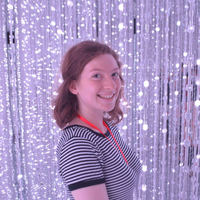EYS English Rhythmics
Greetings from Francesca, rhythmics teacher at EYS! Since April 2019, I have been delivering rhythmics classes in English at the Ginza studio for 0-2-year-olds and developing the rhythmics curriculum for EYS.
What’s “rhythmics” you may ask? Put simply, it is a way of learning, experiencing and enjoying music through movement. EYS English rhythmics classes are inspired by the Dalcroze Method, and focus on fostering enjoyment of music and English through singing, dancing, matching movement to musical elements such as rhythm, melody and tempo, playing and listening to a wide variety of instruments and genres of music and by providing rich sensory experiences for children (and parents!) to explore.
The aim isn’t to be able to play the tambourine perfectly in time or to learn all the words to ‘Old MacDonald Had a Farm’ – it’s about developing imaginative and creative skills, encouraging self-expression and an open-mind, strengthening bonds and forming social connections with others through making and enjoying music together; in short, experiencing the vast wealth of benefits of music learning.
And it’s a learning experience for all involved – not just our mini-“pupils”! As I write the curriculum and deliver my classes, I am always trying to think of new, exciting and varied ways to stimulate the children’s senses, encourage interaction and to make them giggle! Enjoyment is absolutely key in any form of education (and in life in general, right!) so it is always so rewarding when we discover what a child’s favourite song, instrument or activity is. I try my best to deliver the class only in English – therefore it is a language learning experience not only for the children, but for their parents too! Music is a language itself, and a universal one at that – so we can all bounce along to a beat together or be emotionally moved by music regardless of what language we speak.
From what I can tell, rhythmics is seen as important in early years education in Japan – there seem to be sessions in most nurseries around Tokyo as well as the music schools, and parents are very keen for their children to experience it. This does make me very happy indeed! As I write this blog, I will reflect on my experiences of making music with children in Tokyo and the UK, musing on the similarities and differences. One thing for sure; children of all cultures love to make sound!


/assets/images/639113/original/078bc2ae-368e-4a35-af77-33f423b6a250?1669969870)
/assets/images/882719/original/3b330926-7a5e-4781-b2d4-7b9a6f52e001.png?1480908732)